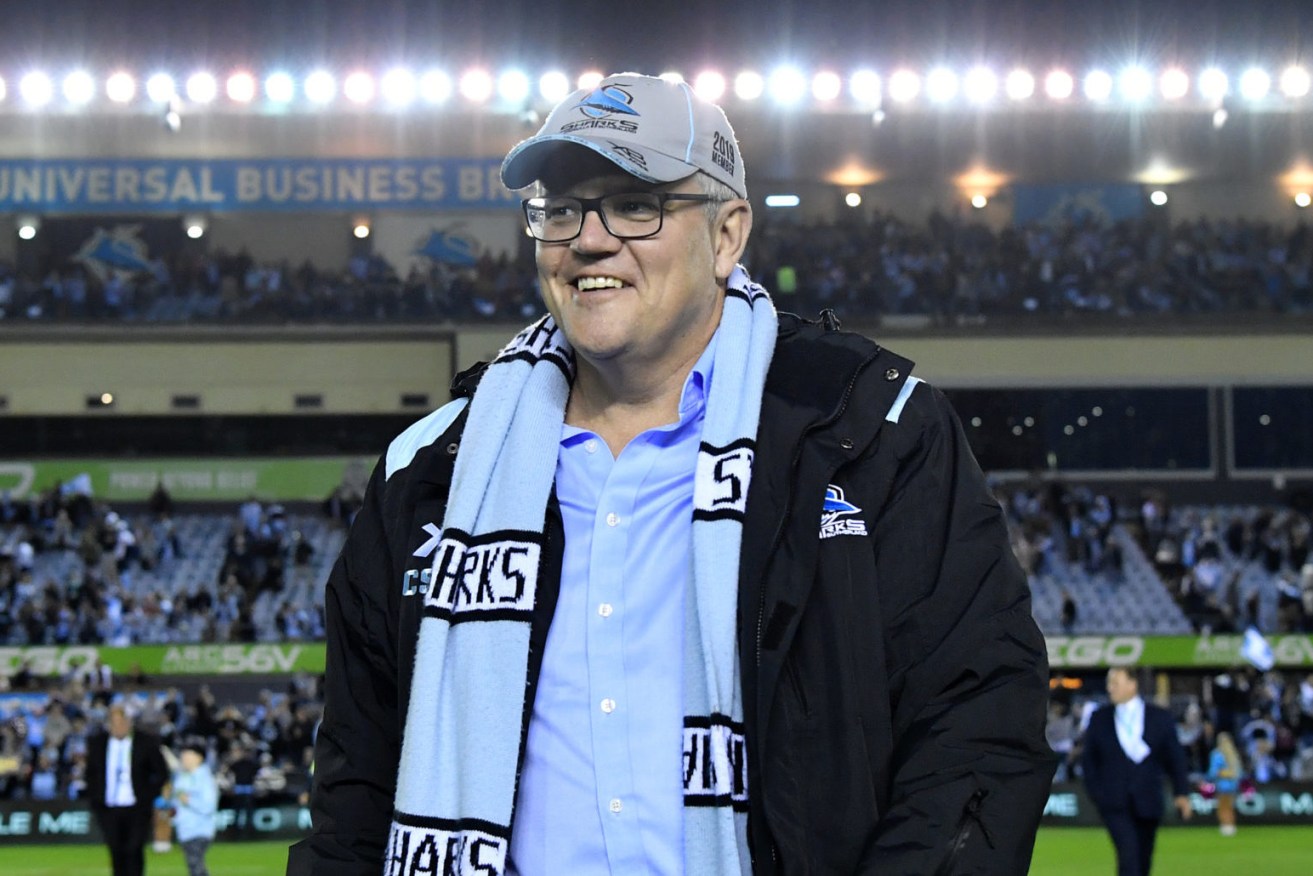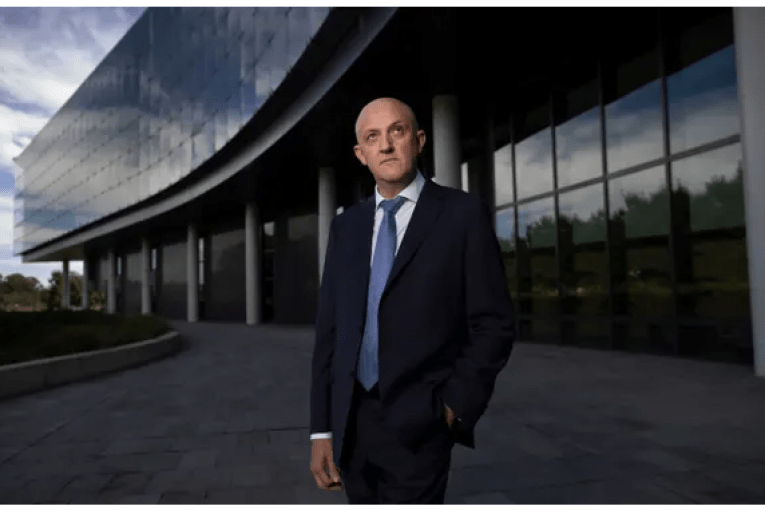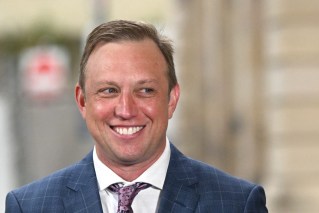Give credit where it’s due but Morrison shouldn’t get off Scot-free
Prime Minister Scott Morrison deserves praise for his handling of many aspects of the COVID-19 pandemic but that doesn’t mean he should be immune to criticism, writes Dennis Atkins


Prime Minister Scott Morrison has manintained a clear lead as preferred prime minister in the latest Newspoll. (Photo: AAP Image/Joel Carrett)
Sunday was a pivotal day in the story of COVID-19 in Australia. Victoria, battling to bring flourishing community transmission of infections under control, imposed the toughest social and economic restrictions seen outside of global war.
Night curfews, strict travel limits, curbs on personal behaviour and even tighter restrictions on trade and commerce were announced by a battered but not beaten Premier Daniel Andrews. Prime Minister Scott Morrison wasn’t seen in public.
We knew he’d been in contact with his ministers, Andrews and New South Wales Premier Gladys Berejiklian and we learnt he went to the shops – wearing a mask – and cooked a curry. Those last activities were revealed on social media.
However, on one of the darkest days of Australia’s COVID crisis, Morrison was nowhere to be seen or heard in person.
The unrelenting battle with the virus and its health and economic cost has been likened to war – it was an analogy repeated by Treasurer Josh Frydenberg on Monday morning – “we very much feel like it’s a war-like situation with every Victorian on the frontline,” he said.
Despite this Morrison was nowhere to be seen when a new fightback was announced in one of the key battlegrounds.
Morrison did emerge late on Monday afternoon, offering everyone in Victoria “an elbow” because hugs were out.
“Right now here today it’s just a matter of helping each other absorb what’s been announced,” he said, displaying necessary empathy. At the same time, Morrison announced a limited, Victoria-only, 14-day-long pandemic/disaster payment – something the union movement first requested four months ago on a universal but temporary basis.
In response to the weaknesses surrounding uncertain, insecure, day-to-day work in modern times any pandemic leave needed to be available to all impacted – and should have been in place when the full impact of the pandemic was apparent.
Morrison’s appearance was welcome but more than 24 hours later than it should have been. His announcement on pandemic leave was much more overdue than that.
It’s worth looking at Morrison’s decision not to emerge on the weekend and put it into the context of his overall performance in the face of COVID-19.
Morrison has been praised near and far for his handling of this single challenge facing political leaders around the globe in 2020.
He was a foundation member of the First Movers Group of nations – Australia along with Austria, Denmark, Norway, Greece, the Czech Republic, Israel and Singapore, all of whom were successful in tackling the early phase of the pandemic.
Morrison has been praised by global media, from The Economist, The Financial Times and Wall Street Journal.
Locally, he’s been acknowledged as successful on almost every front – something regarded as doubly remarkable because this achievement followed so closely his just as widely criticised mishandling of the summer bushfires.
In December and January, the Prime Minister refused to return to Australia from a family holiday in Hawaii, dismissed the advice of experts, was late to take the issues seriously and was heckled for not showing empathy for bushfire victims.
He’s learnt from these mistakes and missteps and these self-corrections have helped him take on the COVID-19 challenge and deal with the rolling policy issues that have emerged.
All of this is welcome and Morrison deserves the plaudits he’s won for this changed behaviour and attitude.
However, there are some key faults that Morrison hasn’t attended to. Morrison doesn’t like criticism and is stubborn in the face of it, he won’t admit mistakes regardless of obvious evidence highlighting any that might occur and he remains prone to shift blame when he’s under pressure.
There’s no doubt the cancellation of the two weeks of Parliament, which was to have begun today, is driven as much as anything by Morrison’s aversion to criticism. Giving a national platform to his political opponents takes the agenda out of the Prime Minister’s hands and he won’t allow that to happen if it can be avoided.
Morrison now seeks to make a virtue of supporting Parliament sitting for the second planned two weeks but his current enthusiasm doesn’t jell with the original scrapping of the first fortnight. If this second sitting can happen when things have clearly worsened, why couldn’t the first two weeks have been maintained? The answer is simple: the Prime Minister didn’t want it to happen.
A dislike of scrutiny is not confined to cancelling parliament. The national cabinet, which was shown to be fit for purpose in tackling the pandemic and its consequences in the early stages through March, April and May is now a more pro forma fortnightly meeting that’s very much controlled by the Commonwealth and Morrison.
Given the scale and scope of the Victorian experience, it is extraordinary that the national cabinet hasn’t met outside of its tightly held format.
The accountability antipathy was also on display when Morrison announced his COVID Commission advisory body would be reconstituted as an adjunct to the federal cabinet, removing it from freedom of information and other types of transparency.
Also, backgrounding against the Victorian Government – regardless of whether it might be justified at any level – is straight out of the Morrison political playbook. It was first on display this year when his office was whispering criticisms to journalists about NSW Premier Berejiklian and the bushfires in January.
Now Morrison criticises either directly – without softly coded language – or uses surrogates and then retreats, as he did at the end of last week after WA Premier Mark McGowan was lectured to about his border policy.
None of this should detract from Morrison’s many successes but serve as a reminder those positives should not leave him outside criticism. These are unprecedented times with unprecedented challenges, making accountability and transparency even more important than in more normal circumstances.












